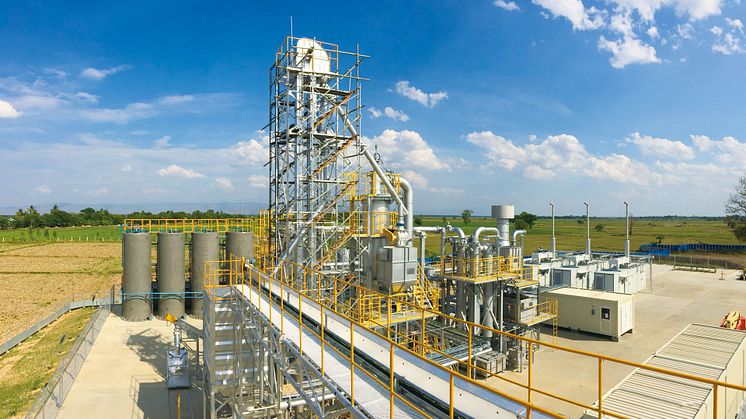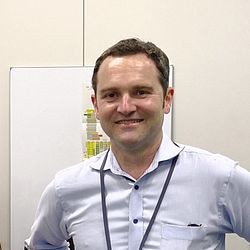
News -
Rice Husk Biomass Power Generation Pilot Program in Myanmar
Myanmar is a leading agricultural country in Southeast Asia, where approximately 60% of the people are engaged in agriculture, which makes up 30% of the GDP. Its rice production in FY2013 was 28,770,000 tons, of which 1,300,000 tons was exported. Rice is an important export for Myanmar.
However, while electricity demand increases with the country's economic growth, approximately 70% of its power relies on hydroelectricity and the like, and the electrification rate, inclusive of rural areas, is limited to approximately 30%. The low electrification rate affects many types of manufacturing equipment. The gasification equipment used for rice is unstable due the low technological level, resulting in cracked rice with lower quality. For major rice exporters like Myanmar, ensuring the stable supply of power and improving the quality of rice is vital.
Myanmar generates huge amounts of chaff from locally cultivated and harvested rice each year. Seeing the potential to help improve Myanmar's electrification rate and contribute to high-quality rice production, the Yanmar Group is engaged in a pilot program to generate electricity from biomass-derived biogas.
Using the chaff as fuel for gasification power generation systems, the aim is to provide all the required electricity for running the rice mills, while using the waste heat via a cogeneration system to dry the chaff. The residues from rice husks left over from burning the chaff contain fertilizer components which can be returned to farmland to help recycling-oriented agriculture. The amount of CO2 emissions is also expected to be much reduced compared to electricity from conventional power systems like power plants.2 The pilot program is planned to last until March 2018, and in the future we hope to spread such systems to other Southeast Asian nations with unstable supplies of electricity.
Flow of the System in the Pilot Program for Biomass Power Generation

